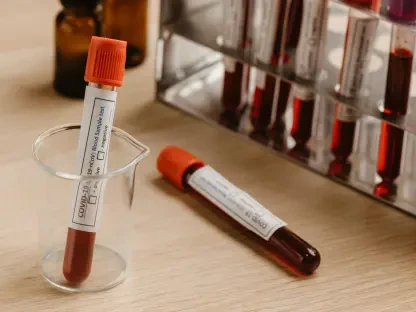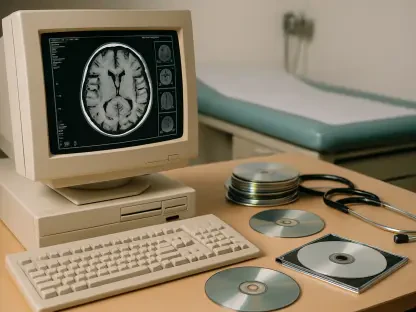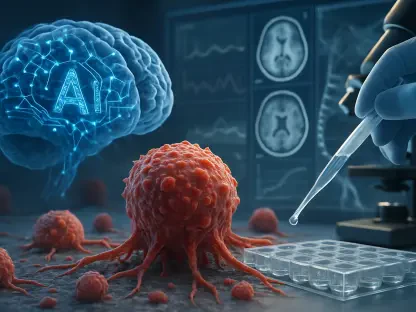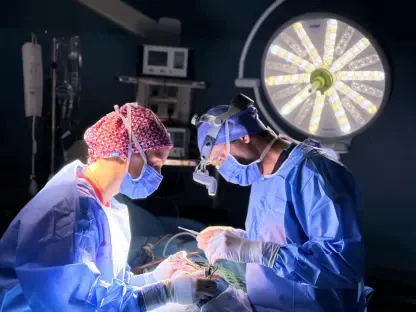Texas Tech University’s Paul L. Foster School of Medicine has recently welcomed Dr. Eric Rohren as the new dean, a pivotal appointment that promises to shape the future of medical education and service in El Paso. Rohren, transitioning from a prestigious role at Baylor College of Medicine, takes over from Dr. Richard Lange, who has served as both president and dean since 2014. This leadership change coincides with a strategic expansion, including the development of a cutting-edge cancer treatment center, emphasizing the institution’s commitment to advancing healthcare services. Under Dr. Rohren’s guidance, the university aims to leverage its resources, including a $269 million budget and a student population of nearly 500, to enhance its educational offerings and community impact.
Enhanced Leadership for Expansion
The Selection and Vision of the New Dean
Dr. Rohren’s appointment as dean marks a significant change for the Paul L. Foster School of Medicine, reflecting Texas Tech’s progressive approach to aligning leadership with strategic goals. Selected from a large pool of over 40 candidates, Rohren’s expertise in cancer imaging and radiology aligns well with the university’s ambitions, particularly the planned introduction of a state-of-the-art imaging facility. This decision was driven by a comprehensive search process involving an 11-member committee composed of faculty and administrative leaders. Their commitment to finding a leader who embodies both academic excellence and practical experience underscores the university’s dedication to advancing its institutional objectives.
With his extensive background in medicine and leadership, Rohren is well-positioned to navigate the challenges and opportunities that lie ahead. His role will involve not only managing substantial budgetary resources but also steering the medical school toward a future-oriented approach that addresses both local and broader healthcare needs. The emphasis on specialized initiatives, such as the imaging facility, demonstrates a clear focus on innovation and quality in medical education. Rohren’s vision for the institution includes enhancing its national reputation while staying rooted in the community-centered values that have characterized Texas Tech’s presence in the region.
Focus on Innovation and Community Integration
Rohren’s appointment comes at a crucial time as the Paul L. Foster School of Medicine integrates its educational offerings with community-focused healthcare services. Known for its innovative curriculum that includes medical Spanish, the school reflects the diverse needs of the U.S.-Mexico Borderplex region. This multicultural approach is vital for addressing the unique healthcare challenges faced by the area, further establishing Texas Tech as a leader in culturally responsive medical education. By intensifying its focus on regional healthcare requirements, the institution aims to elevate its standing both within Texas and across the nation, a vision that Dr. Rohren fully embraces.
The new leadership is expected to drive Texas Tech’s commitment to expanding its service to underserved populations while ensuring that educational programs are aligned with real-world medical challenges. This integration of education and service requires not only a strategic vision but also effective leadership to implement changes and sustain progress. With the added dimension of specialized training in radiology and cancer imaging, the institution is setting itself apart as a hub for cutting-edge medical research and education. This dual focus on innovation and social responsibility is foundational to the university’s mission and is anticipated to shape its path in the coming years.
Texas Tech’s Broader Educational Impact
Strategic Leadership and Institutional Growth
Texas Tech’s decision to separate the roles of president and dean and appoint Dr. Rohren is emblematic of a broader strategy aimed at fostering growth through specialized leadership. By allowing Dr. Lange to focus on his role as president, the university enhances its capacity to drive campus-wide progress while enabling the medical school to pursue targeted advancements in healthcare education under Rohren’s guidance. This structural adjustment signals an institutional prioritization of differentiated leadership to advance specialized areas of growth, ultimately benefiting the entire university community.
As the new dean, Rohren’s mandate includes ensuring that educational practices are both innovative and aligned with the latest advancements in medical science. This entails not only capitalizing on existing strengths but also exploring new avenues for collaboration with local and national partners in the healthcare sector. By aligning its resources and expertise with the evolving demands of medical education, Texas Tech is positioning itself as a key player in shaping the future of healthcare, not just regionally but also on a wider scale. The leadership transition catalyzes these efforts, underscoring a clear commitment to excellence in both service and education.
Long-term Vision and Regional Engagement
The broader vision for Texas Tech and its medical school includes a strong emphasis on community engagement and service delivery, areas where Dr. Rohren’s leadership is expected to make a significant impact. With healthcare becoming increasingly complex, the need for medical professionals who are not only skilled but also culturally competent is paramount. Texas Tech’s approach to integrating community-focused education with specialized medical training reflects its dedication to these principles, aiming to produce graduates who are equipped to meet the diverse needs of the communities they serve. This approach fortifies the university’s long-term goals of sustaining regional engagement while enhancing its institutional reputation.
In the coming years, the challenge will be to maintain the momentum of progress and ensure that the strategic initiatives under Rohren’s leadership come to fruition. This involves a continued focus on incorporating technological advancements and innovative curricula into the educational framework. The establishment of the cancer treatment center, with its emphasis on cutting-edge research and community service, further illustrates this commitment to growth and development. Dr. Rohren’s tenure promises to be a pivotal period in Texas Tech’s evolution as a leader in medical education, poised to influence both the regional and broader healthcare landscapes positively.
Looking Ahead: Leadership’s Role in Driving Change
Paul L. Foster School of Medicine at Texas Tech University recently appointed Dr. Eric Rohren as its new dean, marking a significant milestone in shaping the future of medical training and healthcare service delivery in El Paso. Dr. Rohren assumes this role after an esteemed tenure at Baylor College of Medicine, succeeding Dr. Richard Lange, who has been the president and dean since 2014. Dr. Rohren’s leadership arrival coincides with a strategic push for development, particularly with plans for a state-of-the-art cancer treatment facility, showcasing the school’s dedication to advancing medical services. With Dr. Rohren at the helm, the university is poised to effectively use its substantial $269 million budget and the efforts of its nearly 500 students to enhance its educational programs and broaden its influence in the community. This expansion reflects a firm commitment to integrating health innovations and educational excellence, aspiring to set new standards in medical education and community health.









